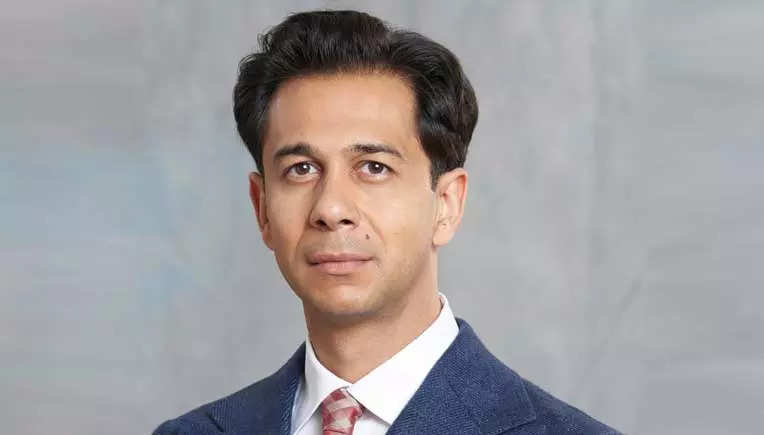
Deepak Jain believes the present transition in the automotive industry presents an “interesting dilemma” for the auto component industry.
“Industry has been talking about a powertrain agnostic policy and India is such a diverse market which will allow this to happen. India has also been adopting stringent norms on ICE with CAFE 3 too and that has increased prices,” says the Chairman & Managing Director of Lumax Industries.
This, in turn, explains the shift from small cars to SUVs because there is no longer a Rs 2 lakh car on offer in the market but the same model is now priced three times more. Preferences are changing along with affordability levels, adds Jain. From the auto component sector’s point of view, its stakeholders are operating in a growing market which offers immense potential and, yet, they cannot grab everything that comes their way.
“The component guys are specialists and not generalists..they cannot embrace all technologies but need to pick and choose. Some have gone to EVs and alternative fuels while some have stuck to ICE,” says the Lumax CMD. Even now, there is “so much of unclarity” as in the case of EVs, where “we don’t know” what the battery composition finally will be.
People within the ecosystem are, of course, aware that prices are coming down, that China has taken a huge lead and the key lies in localisation of battery parts. And then there is the Government narrative of build in India “but we still don’t see those investments coming in”.
Global South
From an auto sector perspective, continues Jain, there is a geopolitical issue with China which “we fully acknowledge and support”. The reference is to the uncertainties along the border which have been on for four years now. According to him, there is a “global south” emerging which India needs to take advantage of and yet needs to be careful on how it engages with other countries, including China.
“But when I look at it purely from a business and economics point of view, we need to respect that China is the largest producer and market in the world and, from a new technology of view, is way ahead. If it is not geopolitical or a security-sensitive issue, you should engage with China on your own terms in certain areas to at least help flourish the ecosystem globally, Eventually, you want to have access to the globally competitive value chain,” says Jain.
This observation has already been articulated in the Economic Survey which has batted for FDI investments from China so that India will not be isolated from the global supply chain. Further, argues the Survey, products made here could then be exported which would only help India’s cause eventually.
As Jain puts it, four decades earlier “we would take technology out of Japan” but today there are a huge number of startups in India which also have a role to play. “”We need to use this entrepreneurial spirit to fast track with some of these more established economies in the automotive sector…try and imbibe that technology and build upon it for the Indian market,” he explains.
“For us, so long as FDI is supporting Indian localised manufacturing and you tick the right boxes in terms of zero security risk, there has to be some engagement (with China). India is also a strongly emerging growth market and China cannot afford to lose sight of that,” reiterates Jain.
Lumax gameplan
From his company’s perspective, the leadership is absolutely clear on “what and how we want to play” the future mobility game. More than just being EV- centric, Lumax is keen on getting into components that catch trends in future mobility like light weighting, human machine interface, connected vehicles, SDVs and more electronification ..more sensors and the like.
“Lumax is a strong brand in lighting where the technology is changing rapidly and we are very clear on the road ahead. We also want to play in the transmissions game because the comfort of a vehicle is very important as also the drive,” says Jain.
As he adds, “I don’t think you are looking at either EV or ICE but are playing a game which is EV plus ICE. There are powertrains which are unique to India like CNG which we might dabble with in future as it could be an economic and efficient way to drive future mobility.”
However, there are external factors which could impact investments. For instance, what happens to volumes in the event of a slowdown or an abrupt policy change which can affect critical issues like commodity and fuel pricing? These are difficult situations for companies to cope with. “To each his own when it comes to deciding future mobility solutions and going forward,” says Jain.
The cliche of ‘China plus one’ is now getting a little tiresome to some industry participants since it is tantamount to idle chatter that does little credit to India. In reality, people “should source from India because they want to engage with and do business in India”. The Lumax chief believes the country can gain that trust with competitive and quality products coupled with ease of doing business.
“We are taking steps in the right direction and this is what China did in creating an ecosystem which was globally competitive and everyone had to do business there. India must similarly follow suit in creating the right building blocks for manufacturing, the right ecosystem etc. We are still far away but at least are aware what we need to do to go there,” he says. Jain makes it clear that Lumax will evaluate all opportunities and as a company encourage global partnerships and “try to do deep localisation” to service customers.
Restructuring inevitable
With big brands in the European component industry going in for business restructuring — ZF and Continental are two that immediately come to mind — Jain says the future of mobility “is so different “that restructuring becomes inevitable where the speed of change is “incredible”. No more is it just the auto and components industry but other sectors too which need to be included like electronics etc.
This means an amalgamation of many industries to cope with new mobility trends where Tesla is “a super example” and in India, new age players like Ola have changed the rules of the game. Legacy players are also restructuring their business and this will be the norm in order to become fast footed and nimble to meet future challenges.
Beyond this is the challenge of skills particularly in India which is a growing market. Retaining those skills in any company is also important especially with new frontiers like Industry 4.0, cybersecurity and so on. When SDVs come in, one will have to start merging software skills with hardware component skills and build it for better vehicles. “Skills will become your competitive edge by the end of the day,” signs off Jain.
















